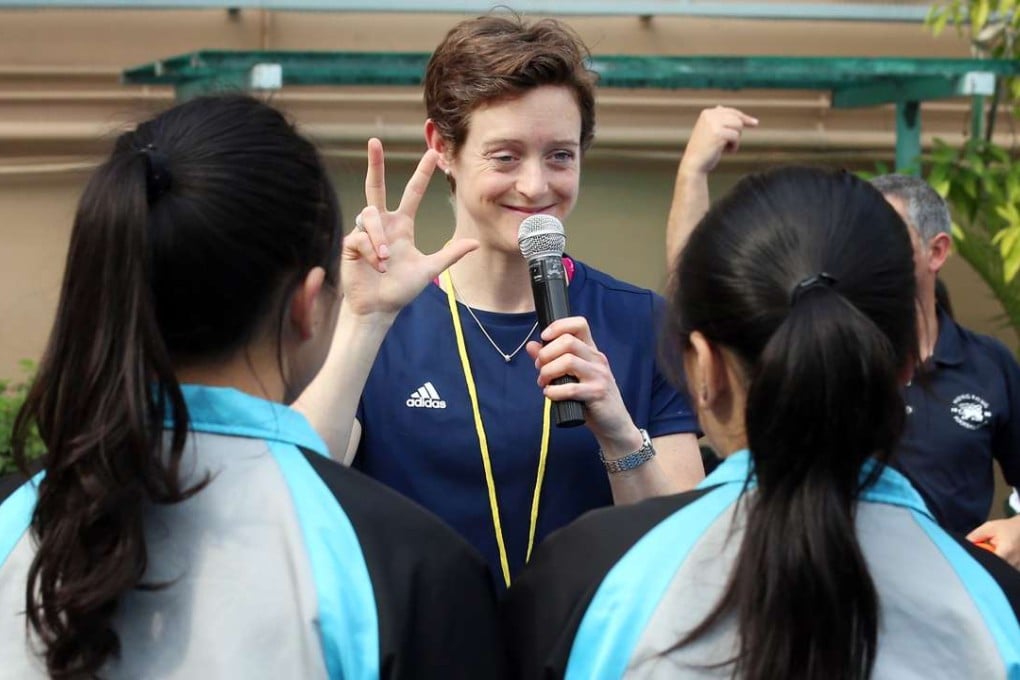Olympic gold medallist (and PhD) Hannah MacLeod warns Hong Kong kids not to focus solely on academics
Olympic gold medallist inspires underprivileged kids in Hong Kong

It’s hard to imagine anywhere further removed from the tourist hot-spots of Hong Kong than a charity-aided school in Tuen Mun, but that’s where Dr Hannah MacLeod has decided to spend a few hours of her holiday on this humid afternoon.
The 32-year-old is in town visiting her parents – her ex-Royal Air Force father now trains pilots for Cathay Pacific – but she’s also spending her spare time to introduce some of Hong Kong’s poorest kids to hockey.
MacLeod is an Olympic gold-medal winning athlete, one of the stars of the Great Britain team that beat defending champions the Netherlands in Rio last summer.
While that feat was huge news in the UK, it’s unclear how familiar with it the 30 or so girls from Chung Sing Benevolent Society Mrs Aw Boon Haw School are. Nary a hand goes up when MacLeod asks how many of them have seen a hockey stick before.
But soon the girls – many of whose families are recent immigrants from the mainland and south Asia, some of whom live in ‘cage homes’ – are laughing and enjoying themselves, as MacLeod leads them in games designed to familiarise them with the sport’s techniques.